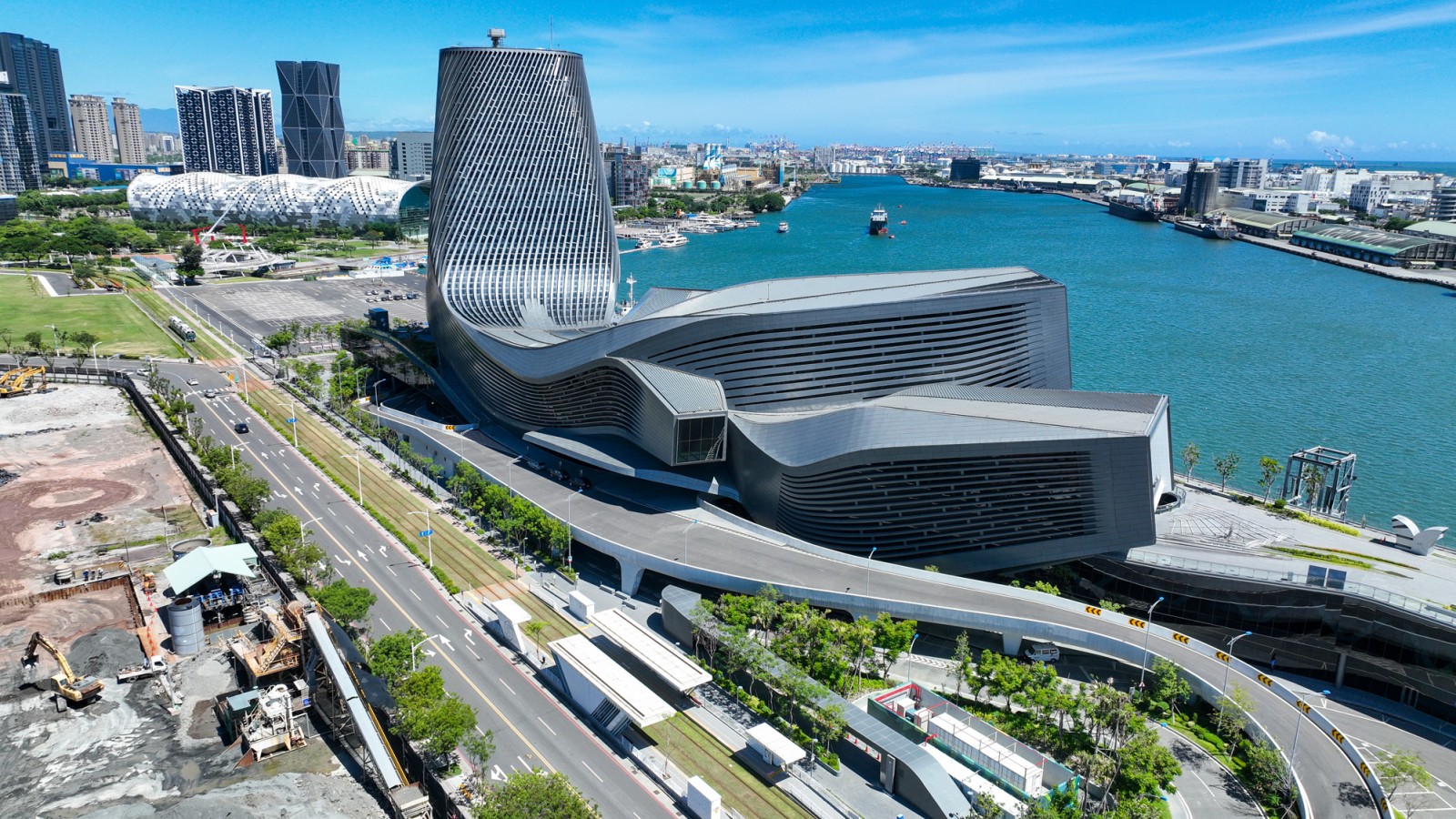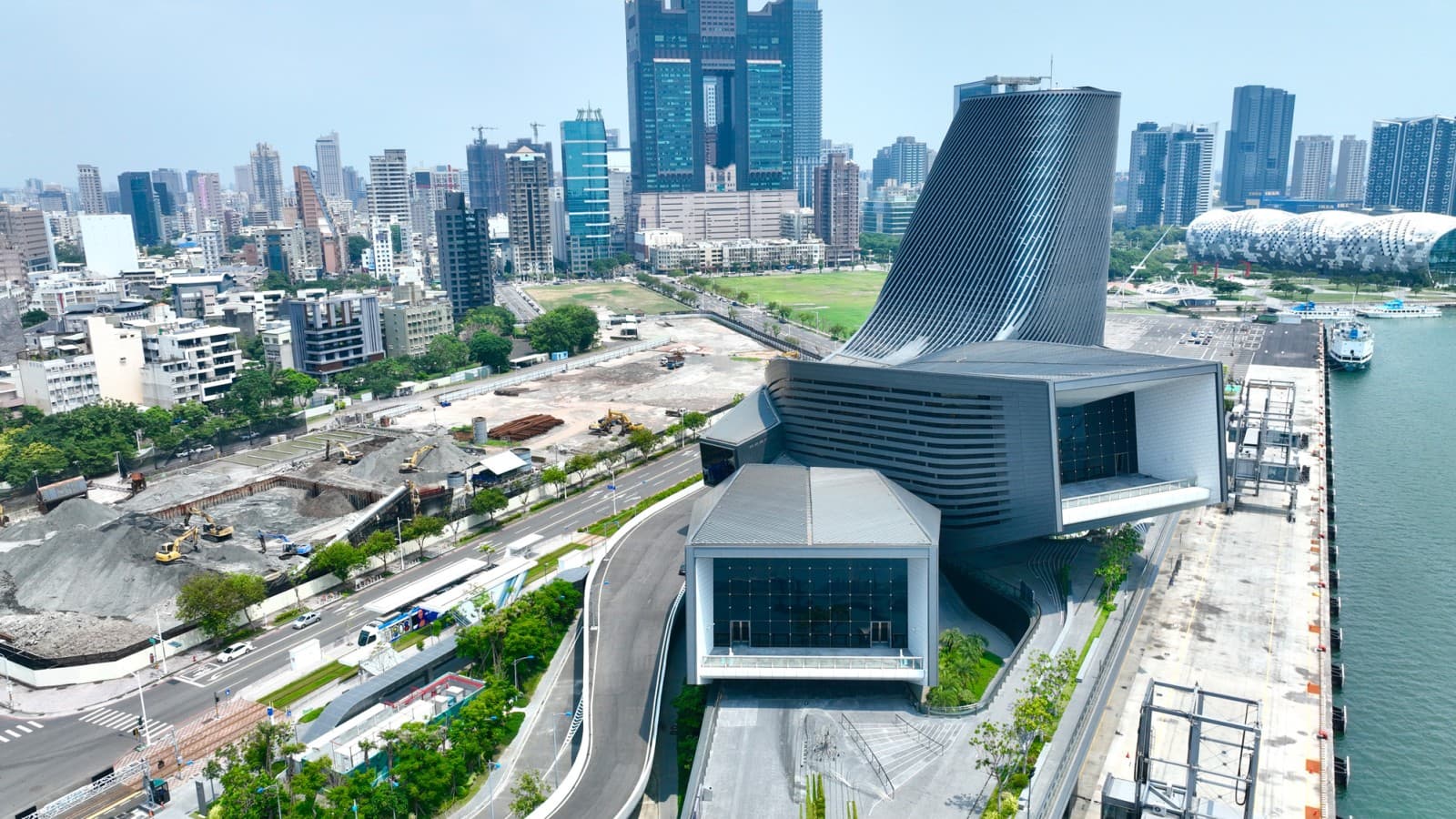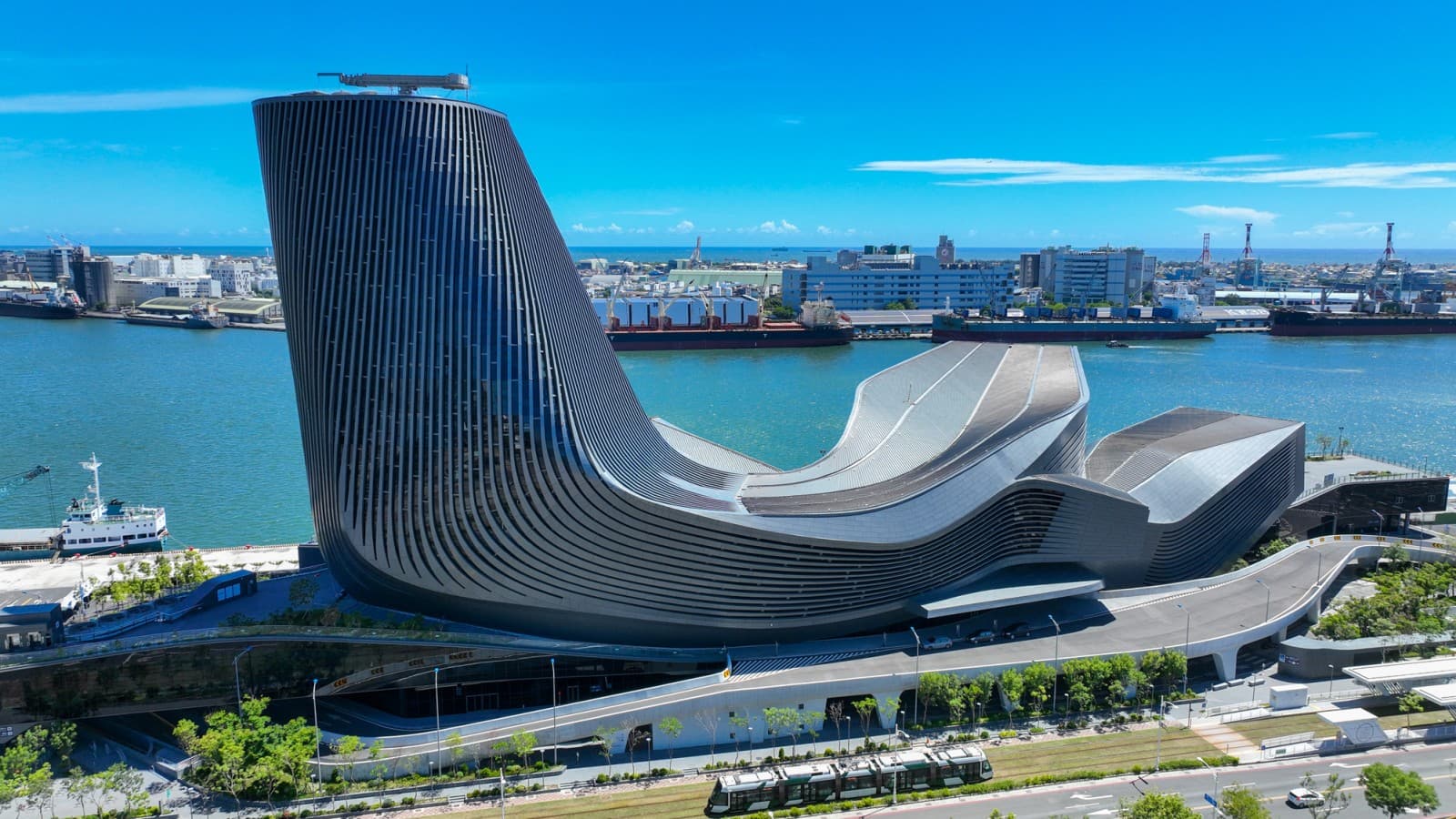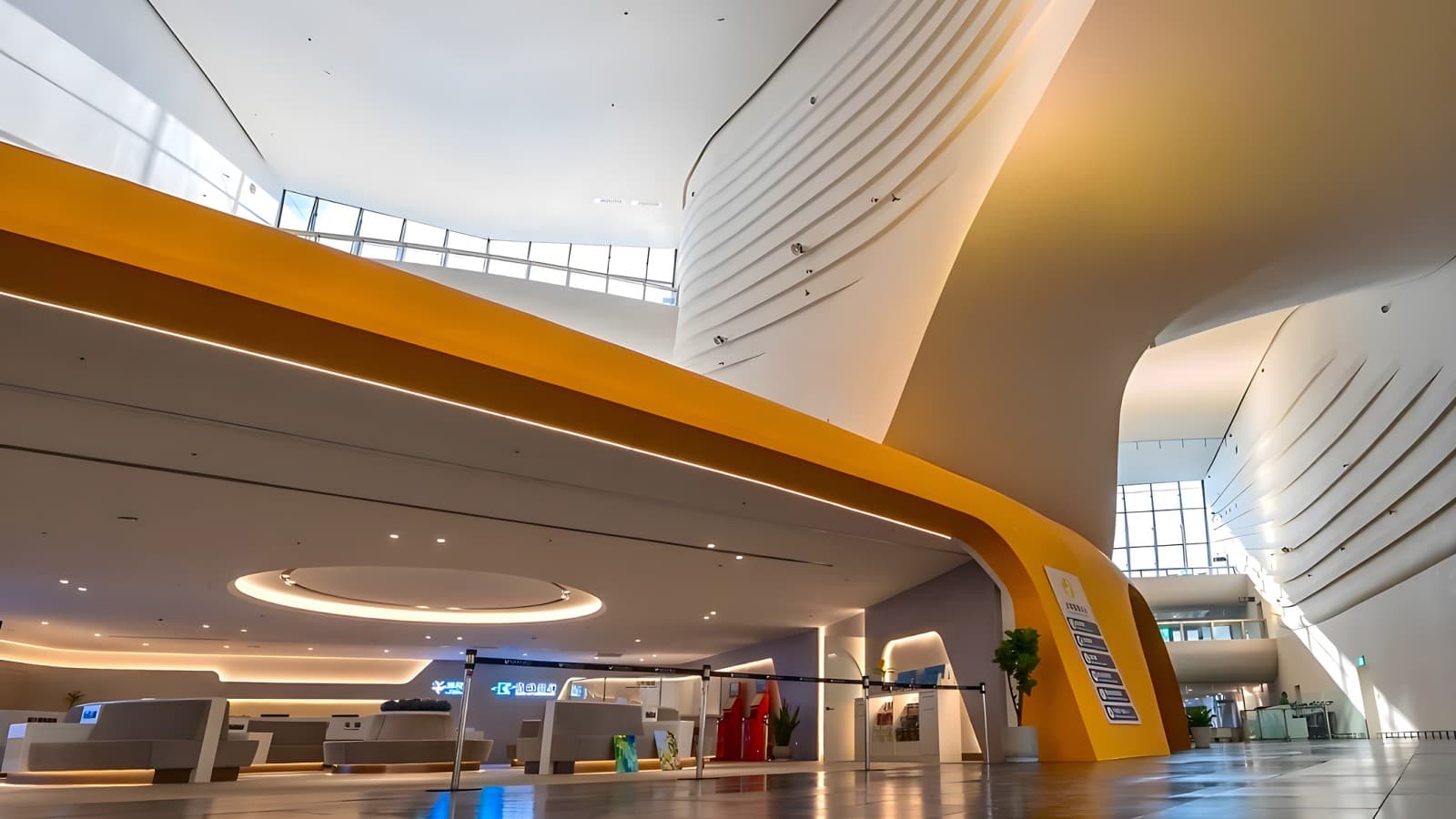
Inside Taiwan’s shipping hub Kaohsiung port terminal, Taiwan
Large container freight and passenger flows come together at Taiwan’s largest port terminal in Kaohsiung. The sophisticated architecture manages the balancing act between efficiency and safety.
At the south-western tip of Taiwan, the energy of global trade meets the rhythm of daily city life. Kaohsiung is home to Taiwan’s largest port, which handles 70 per cent of the nation’s shipping containers.
Thousands of passengers every hour
Beyond its impressive cargo operations, the port is also making waves in passenger transport.
The facility, which spans an expansive 80,000 square metres, is designed to accommodate 2,100 to 3,500 passengers per hour, making it a key player in the region’s cruise industry.
Built in 2023, the Kaohsiung Port Terminal is both a landmark of the city of 2.7 million and a link between the maritime harbour and the vibrant city life.

Bridge instead of barrier
The terminal’s striking design resembles the hull of a ship. The 15-storey office building, which is modelled on a chimney, rises above two underground floors, creating a towering presence along the waterfront.
This innovative design not only evokes the image of a grand ocean liner but also transforms what could have been a barrier into a bridge: Instead of disrupting the flow of pedestrians along the shore, the terminal enhances it.
By creating a continuous, elevated public promenade, it invites residents and visitors alike to engage with the port’s vibrant atmosphere.

Efficient at all levels
Beneath this public promenade lies the heart of the terminal’s operations: distinct areas dedicated to cruise and ferry functions.
The vertical separation of areas for the public, port business and travellers creates safe passages for departures and arrivals and ensures efficient operations.
The terminal’s roof drainage system is also designed with efficiency and safety in mind. In Kaohsiung’s tropical climate, which is characterised by heavy rainfall from typhoons and monsoons, Geberit Pluvia efficiently drains large volumes of water from the roof, thus protecting against potential water damage.

Facts
Geberit Know-how
Geberit products used in the project
- Geberit Pluvia roof drainage system
Architects
Architects
- Client: Port of Kaohsiung, Taiwan International Ports Corp
- Architect: Fei and Cheng and Associates
- Opening: 2023
Subscribe to eView The Geberit newsletter for architects
Whether it’s spectacular hotels, skyscrapers, museums, residential buildings, or exclusive designer villas – innovative Geberit products and solutions are used in projects around the world.
In our eVIEW newsletter, we highlight the most exciting projects. Get inspired – and receive selected architectural highlights straight to your inbox three times a year.
